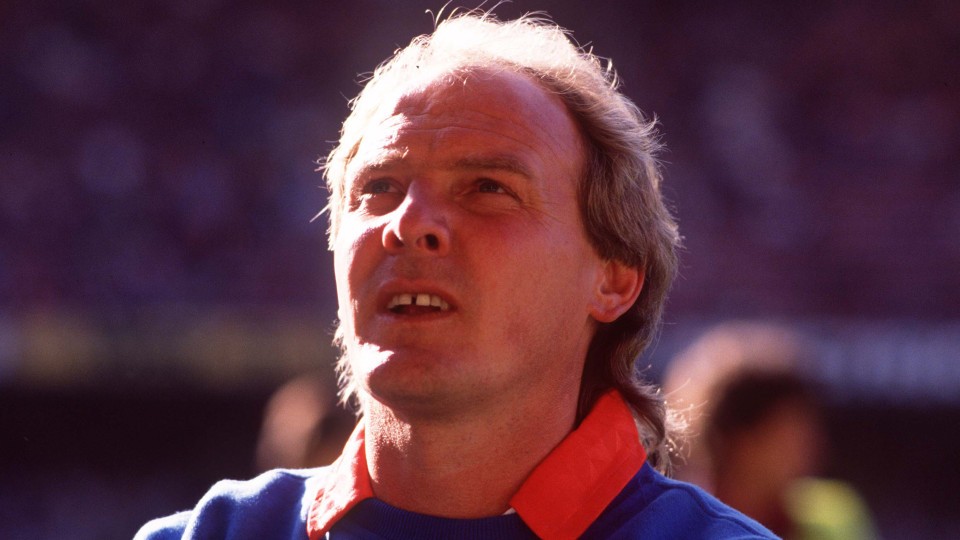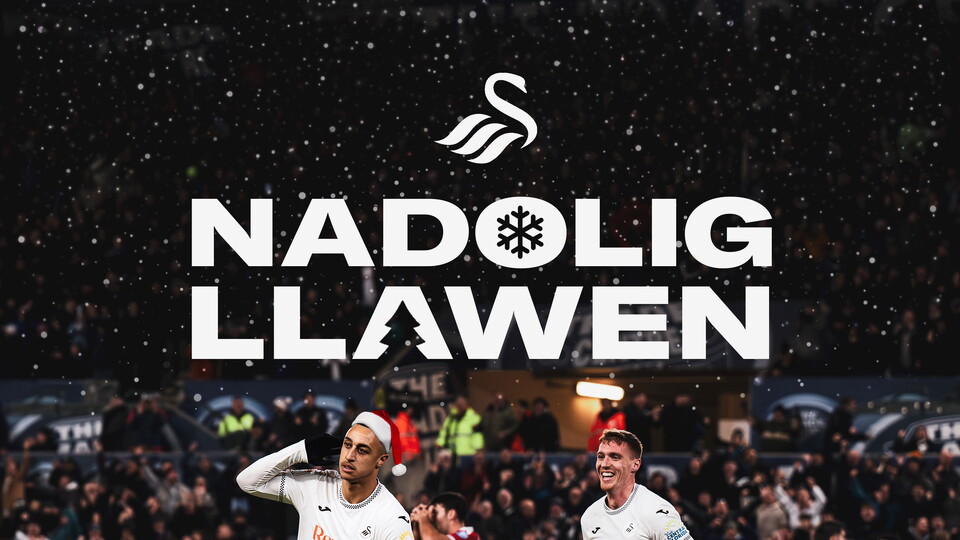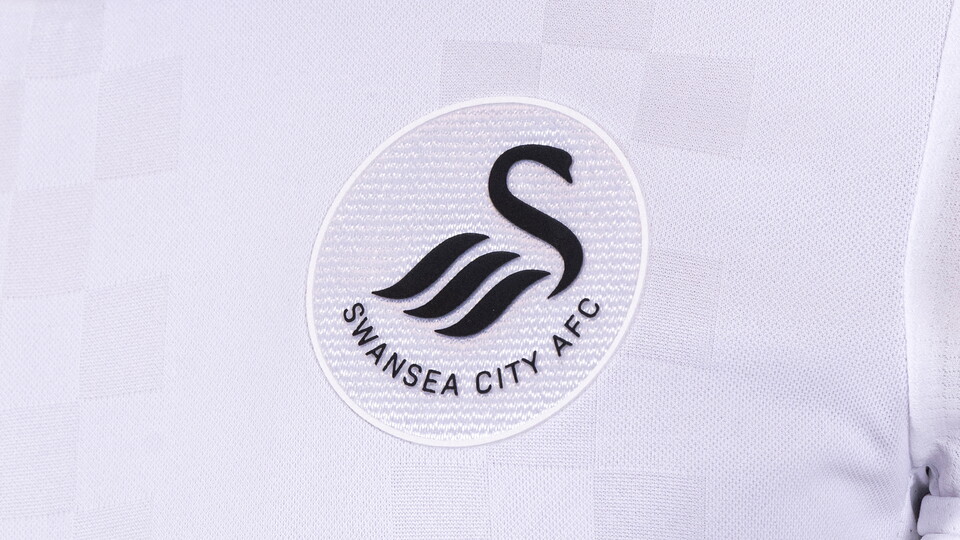Swansea City defender Neil Taylor reflects upon a rollercoaster ride of a season
Mon, 05/30/2016 - 08:00
Rewind to August 30, 2015. Swansea City have just staged a stirring comeback to inflict a 2-1 defeat upon Manchester United. It was their fourth fixture of the Barclays Premier League campaign, in which they were thus far unbeaten and flying as high as fourth place in the top flight.
This was all on the back of their record-breaking campaign of 2014-15, of course, when they had finished eighth in the Premier League, having achieved their highest points total since their promotion in 2011.
Life at the Liberty couldn't be rosier, and the club and its fans were - with good reason - anticipating another season of success.
"I think the feeling was one of optimism," recalls Neil Taylor, reminiscing on the mood within the Swansea dressing room at the start of their topsy-turvy campaign. "We added to the squad in the summer and we felt strong.
"We were inside the top four after the first month of the season and you start to think: 'yeah, we could have a really good season here'. The Premier League is all about momentum, and at the time we had good momentum.
"To go to the home of the champions, Chelsea, on the opening day of the season is really difficult, but we managed to get a positive result, which gave us a really big boost. We then went the first four games of the season unbeaten and were doing really well, but we then saw how quickly football can change."
Swansea's superb start was short-lived. After their thrilling triumph over Louis Van Gaal's side - an impressive third successive victory over the Red Devils - the Swans were brought back down to earth with a bump when they were outfought at Vicarage Road and the subjects of a humbling 1-0 defeat at the home of newly-promoted Watford.
It signalled the start of a sub-standard run that saw the Swans claim just one win from their following 12 matches. Garry Monk's side suffered further defeats to Southampton, Stoke, Norwich and Arsenal, and the early optimism that had flowed through South Wales quickly began to evaporate.
"Like I said, I think momentum is a big thing in this league, and it's a reason that a team like Leicester went on to win the league," explains Taylor, who will represent Wales at Euro 2016 in a fortnight's time.
"When you keep winning games, you get that feel-good factor and you feel like you're just going to keep on winning. It becomes a habit.
"On the flip side, a similar thing can happen if you lose a few games. With us, after we went a couple of games without winning, we really struggled to score goals in that period and the confidence was quite low. The next thing you know, a couple of months later, you find yourselves having not won a game."
Swansea's turbulent run of form hit breaking point when they were dismantled 3-0 at home to the champions-elect Leicester City.
"I think it was the lowest point in that period," the Ruthin-born left back continues. "It was the manner in which we lost the game that was so disappointing. It was 3-0 but could have been more. To lose 3-0 at home is poor; it should never happen. You know you're struggling when it does."
The dismal defeat was the straw that broke the camel's back. Former captain and club stalwart Monk lost his job as manager in the days that followed as chairman Huw Jenkins made the "heavy hearted" decision to part company with the man that guided the Swans to such success the previous season.
"It was a really tough period because it's difficult when you see the manager working so hard to try and get things to click again and turn around," says Taylor. "He always maintained the belief that it would turn around and he preached that this squad was good enough to do so.
"But the problem with football is that it doesn't wait for you, and he didn't get the time. People will say 'rightly so' because it was a bad period for us, but it was difficult for us to lose him, especially as we knew how hard he worked and how well he had done at the job. Coming off the back of a record-breaking season, it just goes to show how quickly football can peak and trough."
In the wake of Monk's departure, Swansea looked to club legend and first-team coach Alan Curtis to steady the ship in rocky waters. With the assistance of Swans Academy head of coaching Dave Adams, Curtis oversaw an immediate reaction.
In spite of defeat at Manchester City, the Swans impressed at the home of the Citizens before earning points against West Ham and Crystal Palace sandwiched in between a vital victory over West Brom.
"Curt had obviously been around it all and could see that we weren't playing 'The Swansea Way' anymore and we had come away from it," adds Taylor. "His first game in charge was away at Manchester City, and we played really well up there, which was when the confidence began to come back.
"We showed that we are a team that is easily good enough to play in this league and just needed that boost and a fresh voice, which is what we got with Curt.
"We spent a good while without a permanent manager, and Curt and Dave Adams can take massive credit for where we finished this season because of that period where they managed the transition and steadied the ship."
If Curtis and Adams stabilised the vessel, then incoming head coach Francesco Guidolin helped sail it forward.
At the time of his appointment in January, the Swans were languishing in 18th position, but over the course of a four-month period, he helped guide his side to a 12th-place finish in the Premier League.
"Francesco was one of 20 or 30 names that were linked with the job, but even then his appointment came out of the blue," reflects Taylor. "It took us a little while to adapt to his game plan, but he wanted us to play with more intensity, more passion, fire and fight.
"He wanted us to win more second balls and to increase the tempo of our game. I think you've seen in the last three or four home games that we've done that. For him, he can say it's a job well done."
But it wasn't all plain sailing for Guidolin and co. After a positive start to his tenure, which began with a 2-1 victory at Everton, the Swans mustered just two points from a possible 12 in February.
It was the month of March that proved the pivotal point in Swansea's "inconsistent" campaign - as Taylor would go on to label it - when they took three wins from four matches, starting with a memorable 2-1 triumph at Arsenal.
"Again, we weren't in a great period, and I think the Arsenal game was one of those where we went there and believed we could get a result," says Taylor. "We're like that against all the big clubs, home and away - everybody knows that. It was a massive game for us and we could feel that we were going to do something.
"The victory there took us through to the Aston Villa and Norwich games, which was our big turning point in the season. They were two games where we didn't really play well but managed to win both 1-0, which is all that matters. They were tight, cagey games lacking in quality - probably two of the worst games our fans have seen at the Liberty in recent years.
"As the weeks went by, the lads saw sides down the bottom play well but not get the results, which is the difference. Picking up results when you're not playing well is key."
For Swansea, 2015-16 has been widely perceived as a season of disappointment, which perhaps says more for their recent achievements than it does their failings of the current campaign.
Maybe they are victims of their own successes, but regardless of how you reflect upon this season, the Swans have still managed to punch above their weight by beating the likes of Arsenal, Chelsea, Liverpool and Manchester United, not to mention a first-ever league triumph at Everton and the dismantling of high-flyers West Ham in the penultimate game of the season.
"The games against those sides have shown what we can do," adds Taylor. "I think in the last month everyone saw the best side of us and also our worst side. We've been inconsistent, which has been the story of our season. And inconsistency usually means you're going to finish mid-table to lower half, which is where we ended up.
"But I do think that the matches against the likes of Chelsea and Liverpool show what we are really capable of. When we are at our best, we are a match for anyone."
As the saying goes, you learn more from your defeats than you do your victories, so how does Taylor reflect upon this season as a whole?
"I think that football is changing every year, and you have to be ready for it," he articulates. "During the early season, Watford came with a 4-4-2 and nobody saw it coming, while Leicester are so fast on the counter-attack.
"There are many different styles of play in the league and so many different types of managers. Each team throw up a different question every week. Maybe the old fashioned way of playing just one way doesn't work as much as it used to.
"At home is where we want to stamp our own style, like we did against Liverpool and Chelsea, but away from home I think we need to be better at nullifying the opposition's threats, because that's where you pick up crucial points, which takes pressure off your home games.
"But also, when you look over the course of the season, we need to improve on defending set-pieces because we concede almost half of our goals from set-pieces. If you change that, it becomes a completely different season, and you find yourselves in the top half of the table instead of the bottom."


